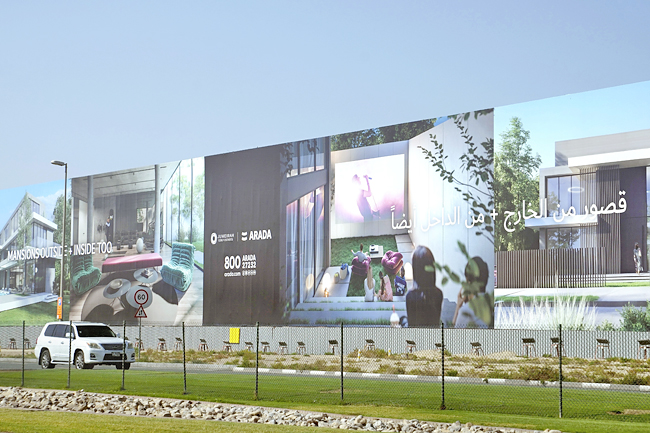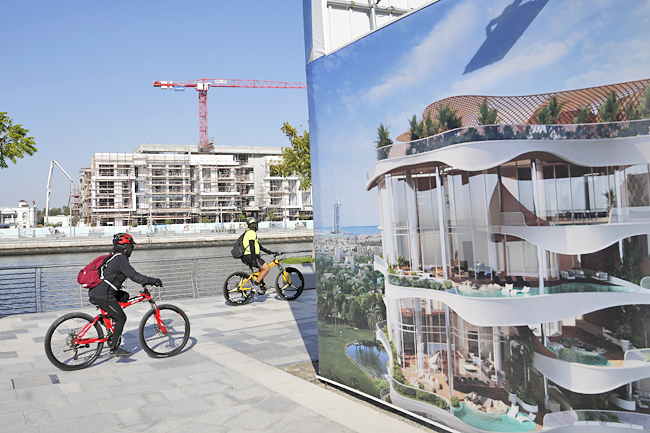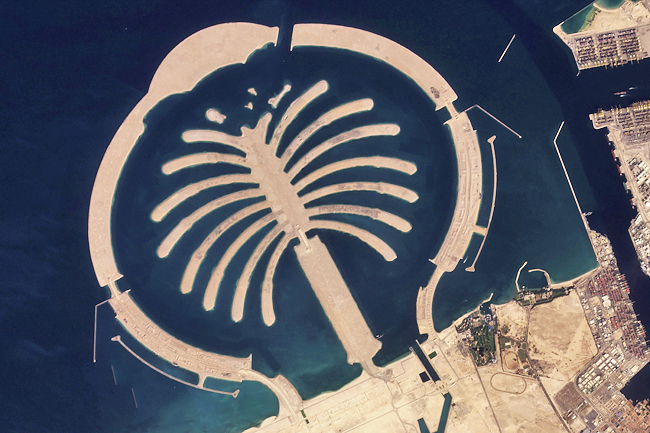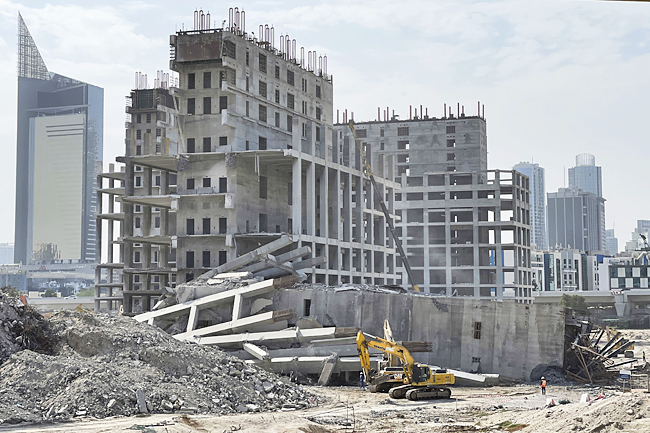DUBAI, UNITED ARAB EMIRATES (AP) – Fourteen years after a financial crisis nearly brought Dubai to its knees, several major abandoned real estate projects are finally showing signs of life as part of a new economic boom in the city-state.
As with previous upturns in Dubai, war is a driving force. But this time it’s Russian investors fleeing Moscow’s war on Ukraine, rather than people escaping Mideast battlefields.
“There’s lots of parts of the world where there are real challenges and people looking for a safe haven,” said group managing director for Betterhomes Richard Waind. “I think that’s a safe haven both for the capital but also for their families.”
While there’s no sign the market could be in similar trouble as in 2009, some concerns have started to surface. Skyrocketing rental costs are worsening a cost-of-living squeeze for the foreign workforce that powers the emirate.
Meanwhile, the United States (US) Treasury is worried about the amount of Russian money flowing into the real estate market of the most populous city in the United Arab Emirates (UAE).
“In theory, there should be significant reputational risk with the UAE apparently acting as a willing bridge, enabling Russian oligarchs to use the Emirates as a waystation between the Russian financial system and that of the West,” said a nonresident scholar at the Carnegie Endowment for International Peace Jodi Vittori, who has written extensively on Dubai being a money-laundering haven.




“But the reality seems to point otherwise,” she said.
Dubai’s government and the UAE’s Foreign Ministry did not respond to detailed questions from The Associated Press.
It’s hard to overstate just how much the Emirates has changed over the last half century. Since 1968, the seven sheikdoms that make up the UAE have grown from a British protectorate of some 180,000 people to a federation that’s home to more than 9.2 million. Government statisticians say 3.5 million people live in Dubai alone, with an additional 1.1 million who temporarily live in the city or commute there for work each day.
Oil, much of it from Abu Dhabi’s vast reserves, fuelled the UAE’s initial modernisation. After Dubai began allowing foreign ownership of “freehold” properties in 2002, the world’s tallest building, cavernous malls and sprawling subdivisions emerged from what once were uninterrupted stretches of windblown sand dunes.
Real estate now represents some 10 per cent of Dubai’s overall gross domestic product. After a slump due to COVID-19 restrictions, Dubai saw 86,849 residential sales in 2022, beating a previous record of 80,831 set in 2009.
Buyers and renters have filled exclusive neighbourhoods such as the Palm Jumeirah, a man-made archipelago in the shape of a palm tree that juts into the Persian Gulf.
The average asking rent for an apartment there is over USD67,600 per year, with a villa renting for USD276,000 annually, according to real estate firm CBRE. Analysts attribute growth in the luxury market to the wealthy fleeing pandemic restrictions elsewhere.
That pressure has grown even outside the world of the ultra-wealthy. Rents on average across Dubai are up 26.9 per cent year-on-year, even with anti-price-gouging protections. Families living in villas can expect to pay median rents of USD76,000 a year.
The sudden increase in rent prompted Gavin Hill, a 34-year-old car salesman from Essex, England, to move with his friend from a villa in the Dubai Hills neighbourhood near downtown to a smaller apartment some 20 kilometres south.
“In terms of looking for a new place, previously it was reasonably easy,” said Hill, who has moved four times in the six years he has lived in Dubai. “This time it’s a minefield”
Russian money has helped fuel this.
Betterhomes, which has operated here since 1986, saw Russians lead all other nationalities in purchases by non-residents for the first time last year. Other real estate brokers have also acknowledged anecdotally the influence Russians have had.
“Since the crisis in Eastern Europe, we have seen a lot of Russians, a lot of Ukrainians as well, looking to both move their family and money out there,” Waind said.
Dubai has a history of seeking a business advantage in crises like the Arab Spring, COVID-19 and now Russia’s war on Ukraine. During the Iran-Iraq war of the 1980s, its new Jebel Ali port repaired ships damaged by explosions and gunfire in the Persian Gulf. The US-led wars in Afghanistan and Iraq saw wealthy émigrés arrive in Dubai and the wider UAE.
Those booms included what the West would consider dirty money as well. Some of the nearly USD1 billion embezzled in the 2010 Kabul Bank scandal in Afghanistan went toward luxury homes on Palm Jumeirah. A cousin of Syrian President Bashar Assad tied to Assad’s sanctioned business dealings also owned property there.
It remains unclear how many Russians have bought in Dubai – and whether the purchases involve people fleeing potential conscription into the Russian army or mass purchases that can be the work of money launderers. Unlike in the US, where property records are public, Dubai does not offer an easily accessible database of transactions.
A team from the US Treasury stopped in the UAE on a Mideast tour in January.
A senior US official told The Associated Press that the agency is concerned about the Russian money coming into the Dubai real estate market. The official spoke on condition of anonymity due to the sensitivity about discussing sanctions.
Already, the Treasury has issued an alert aimed at US commercial real estate stating that Russian oligarchs and their intermediaries could use “highly complex financing methods and opaque ownership structures” to hide illicit funds.
But it remains unclear what, if any, action Treasury would take, considering the defence and economic ties the US has with the Emirates.






